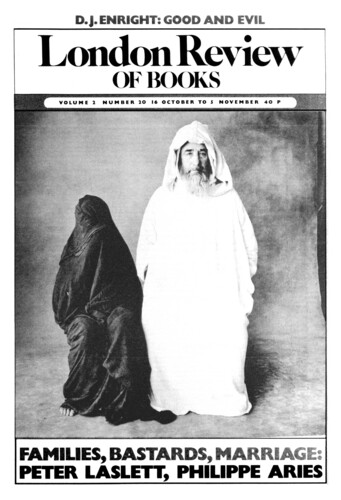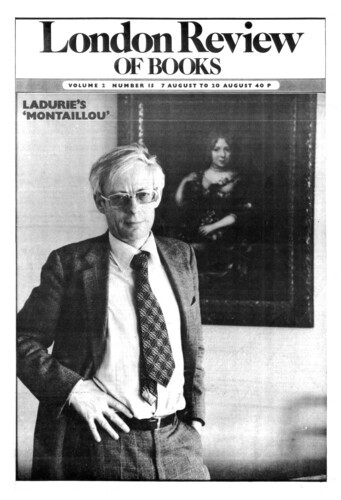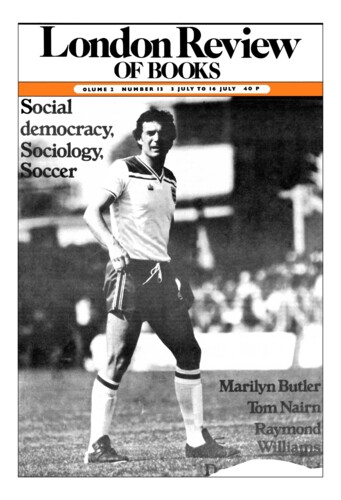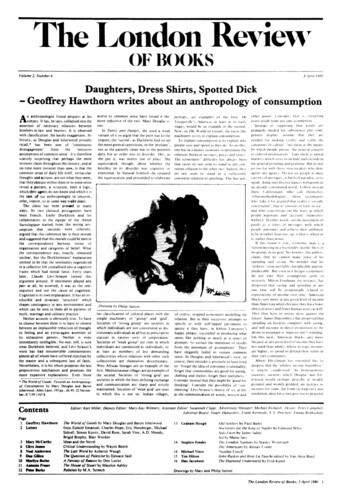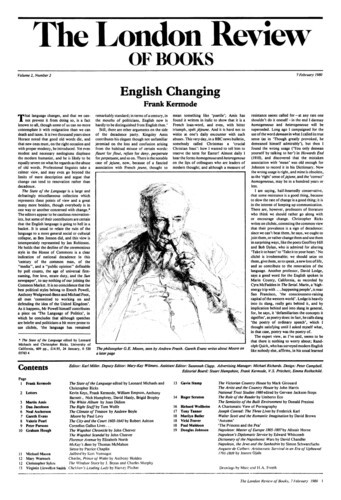The Education of Philip French
Marilyn Butler, 16 October 1980
Can you name the author who set you thinking? For Philip French, at a Bristol grammar school in the 1950s, the enlighteners were Edmund Wilson, F.R. Leavis and Lionel Trilling. For me, at a Wimbledon grammar school in the 1950s, Bertrand Russell filled the slot on his own, largely because his History of Western Philosophy was so long. But by the end of my first year at university I had read at least two books by each of French’s three. We belonged to the Meritocracy, products of the school system set up in 1944 by the Butler Education Act. The ‘Honest Men’ of French’s title flourished in the atmosphere of grammar-school sixth forms, and some pessimists are suggesting that there is little market for their type in Britain any more.
